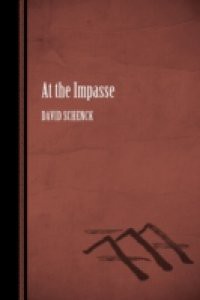In this volume, I have made an effort to push further the practice of assembling philosophical fictions or, if you prefer, literary philosophy. These efforts are driven by conviction that, in so many ways, what were once assumed to be clear boundaries and lines of demarcation between literature and philosophy are not only no longer obvious but, in fact, may well be hindering the development of philosophy or, better, some new form of writing in a fuller sense, beyond the genre demarcations we currently still (mostly) inhabit. To that end (among many others): In each of the three pieces in At the Impasse, there is found the exploration of what in the first piece, "Empedocles in Vienna," is called the "unconscious of a sentence." (And there also the claim that every sentence has one, as every person is understood to.) Or as envisioned in "A Figure, to Suspend a Poetics" that the sentence we look at, expressed by norms of ordinary grammar, is the focal point, but that lying all about it is the field that provides the context that gives the focal point meaning. And so the broken-open sentence as a way of exploring that field and not just its focus. One keeps the focal point, because without that there is no field-only the infinity of language and that infinite world it brings with itself. Nonsense thus explores the field that "surrounds" the object, what William James called "fringe consciousness."

